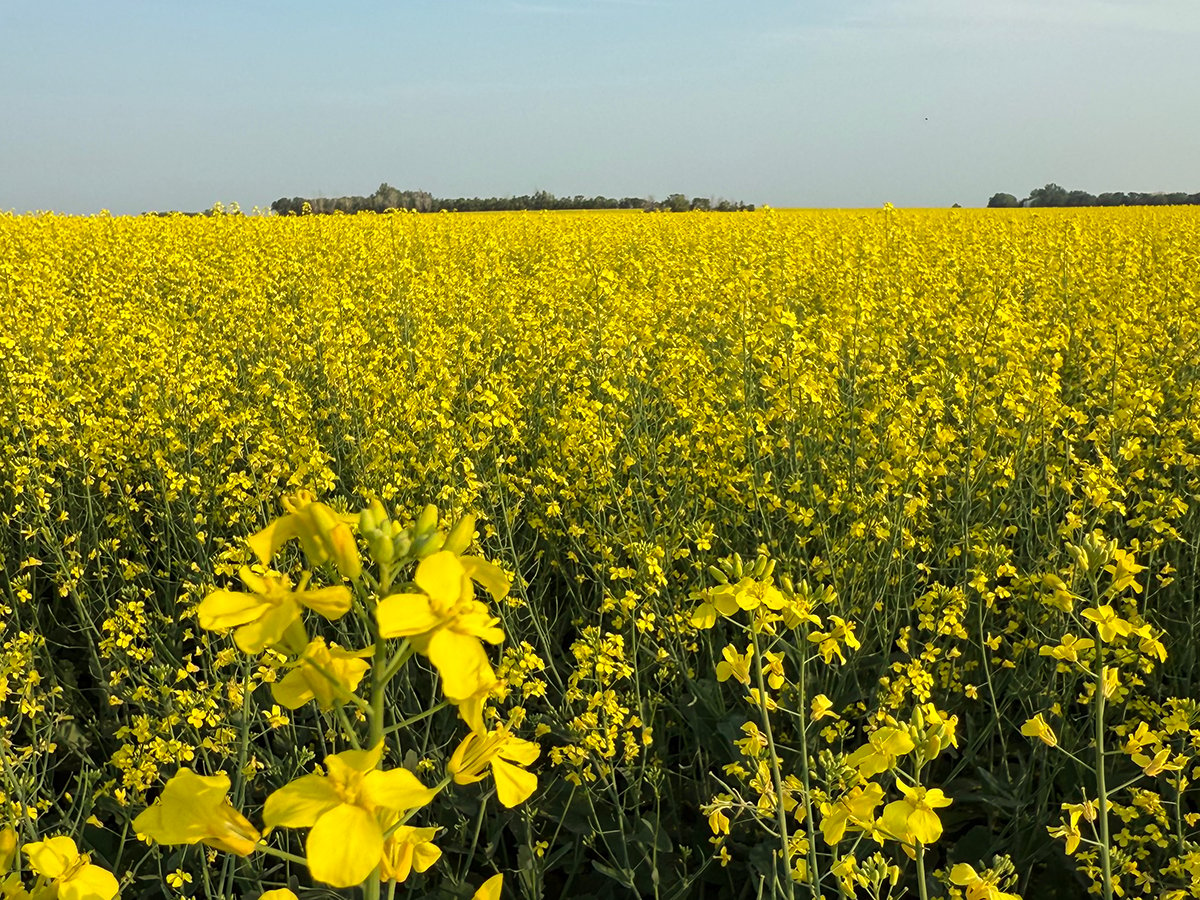Compared to wheat, prices for sunflower are high.
This has attracted more interest in growing the crop, especially in southeastern Saskatchewan.
But the co-owner of the largest processor of sunflower seeds in Canada, Clarence Leschied of Keystone Grain Ltd. in Winkler, Man., urges caution to those including sunflower in this year’s crop plan.
“There are good market opportunities for oil sunflowers, but the early-maturing varieties typically have lower oil content, so anyone planning on seeding large acreages of sunflower should include some hybrids with high oil content,” he said.
Read Also

Canola support gets mixed response
A series of canola industry support measures announced by the federal government are being met with mixed reviews.
“About 70 percent of all oil sunflower in Canada is sold as birdseed, but that market could be overfilled and some sunflower would have to be sold for crushing.”
Still, he said, the market for black sunflower birdseed is large and will probably increase because of the aging population.
Even in the United States, 20 percent of all oil sunflower is sold as birdseed.
Canada’s percentage is higher because it has no sunflower crushing plant.
Average price
Leschied said the average return for oil sunflower is 15 cents per pound. This price follows that of soybean oil, which has been fairly good lately because of a strong demand.
The 1996 elimination of the Sunflower Oil Assistance Program in the U.S. has also made oil sunflower a more viable crop because, when SOAP was in place, Canada couldn’t ship oil sunflower to the U.S. for crushing, said Leschied. The average return to producers for the large striped confection sunflower is 23 cents per lb.
“If the crop and the price is good, confection sunflower is a crop with one of the best returns,” said Leschied.
The confection sunflower market is a large part of his company’s business. The kernel of this striped sunflower is mostly exported to Germany and northern European countries such as Denmark for making bread.
The “in-shell” striped sunflower is sold for roasting, a market that has increased as more consumers view it as a healthy snack food.
“Sunflower as a snack food has become popular because of more and more people with allergies to peanuts.
“The other major buyer – in addition to the Canadian market – is Spain, and a growing market is China, where the number one snack is watermelon seed. We also ship in-shell seeds to Turkey, Israel, Kuwait and Saudi Arabia.”
While the oil sunflower is available in new varieties that mature earlier than traditional ones, the striped confection sunflower is only available in the standard, late-maturing form.
Best in sunny regions
In Saskatchewan, the standard varieties are best suited to the area south of Highway 13 in the southeast corner of the province, as well as in central Saskatchewan around Outlook, where heat units (sunshine hours) are higher than in the rest of the province.
“Sunflowers are also tolerant of the salts in the Weyburn/Estevan clay loam soils,” said Elaine Moats, extension agrologist with Saskatchewan Agriculture in Weyburn.
“Because of the sunflower’s deep roots, it helps to break up the soil. In general, the standard varieties grow quite nicely here.”
Moats said sunflower seminars hosted by the National Sunflower Association of Canada attracted 85 producers in Weyburn last December.
A similar seminar in Regina attracted 192 producers.
“Right now the interest is mostly because of the sunflower returns compared to wheat,” said Moats.
For more information, contact Clarence Leschied, Keystone Grain Ltd., Winkler, Man., R6W 4B3, Tel: 204-325-9555, or Elaine Moats, extension agrologist extension service, Saskatchewan Agriculture, 110 Souris Ave., Weyburn, Sask., S4H 2Z9, 306-848-2384.














